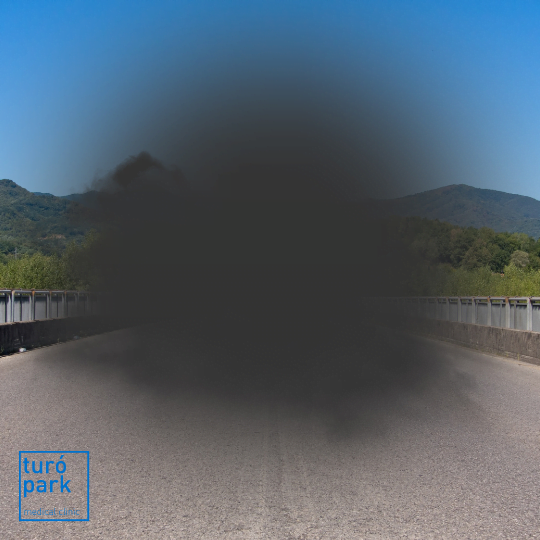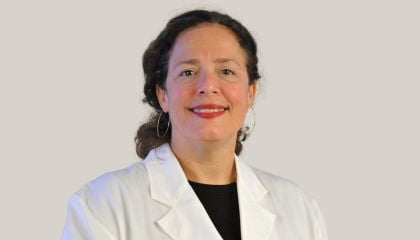Do you suffer from age-related macular degeneration (AMD) and are looking for a specialist ophthalmologist in Barcelona?
AMD is the most common cause of severe vision decline in the western world, but there are various ways to slow the progression of the disease.
If you have or think you have this disease, don't wait to make an appointment with one of our English-speaking ophthalmologists.
What is age-related macular degeneration (AMD)?
Age-related macular degeneration is a chronic eye disease of the central area of the retina, called the macula. It affects people over the age of 50 and causes a progressive loss of central vision, without affecting peripheral or side vision.
Fast track your treatment
To book an appointment or speak with one of our friendly team, please get in touch using the options below.

The different types of macular degeneration
There are two forms of AMD:
- Dry (or atrophic) age-related macular degeneration
This form of AMD corresponds to an abnormal thinning of the macula. It causes a slow and progressive deterioration of central vision.
It should be noted that all age-related macular degeneration begins with the dry form before progressing, in about 1 in 10 people, to the wet form.
- Wet (or exudative) age-related macular degeneration
This form of AMD is characterised by the development of blood vessels (called neo-vessels) in the macula. These abnormal vessels are fragile and allow serum or blood to diffuse, which disrupts the organisation of the retina.
Wet macular degeneration causes vision loss more quickly than the dry form, sometimes within days or weeks.
What are the risk factors for AMD?
The main risk factor for macular degeneration is age, but it is not the only one. The disease most often appears after the age of 50 and its prevalence jumps after the age of 75, especially in smokers or people suffering from obesity, hypertension or high cholesterol.
In addition, the risk of developing AMD is four times greater if a parent or sibling has it.
Finally, other risk factors such as excessive exposure to light are also apparent.
AMD: the most common symptoms
Sometimes, especially in the early stages of the disease, it is possible to have no symptoms at all.
However, patients usually notice :
- A wavy deformation of straight lines
- Blurred vision
- The presence of a spot in the centre of the vision
- Decreased contrast sensitivity
AMD can affect one or both eyes.
To diagnose this disease, even if there are no symptoms, regular eye examinations are recommended from the age of 50, especially in people with a history of it.
How is AMD, or macular degeneration, treated?
It is important to know that only wet AMD can be treated. For the dry form, certain vitamins and food supplements can be recommended to stabilise the process but there is no specific treatment.
The treatment of wet AMD is currently based on injections of an anti-growth factor or anti-VEGF drug directly into the eye. There are currently three VEGF inhibitors: pegaptanib since 2006, ranibizumab since 2007 and aflibercept since 2012.
Monitoring is required after each injection due to the risk of complications (infection, inflammation, retinal tear or detachment).
Laser treatment of AMD involves destroying the abnormal vessels by sealing them with a high-intensity laser. This procedure is not without risk as it can sometimes reduce vision or even lead to central vision loss.
Laser surgery does not improve vision, but it can slow the progression of the disease.
Our specialist's advice on how to avoid AMD
It is not always possible to avoid age-related macular degeneration, but there are certain behaviours that appear to prevent the onset and progression of macular degeneration.
Here are the most important ones:
- Not smoking
- Eating a diet rich in antioxidants and omega-3
- Limiting sugar and alcohol consumption
- Exercise regularly
- Regular eye checks
See life in colour!
Protect your eyes and avoid eye problems with professional care from Turó Park Clinics.

Our team of English-speaking ophthalmologists

